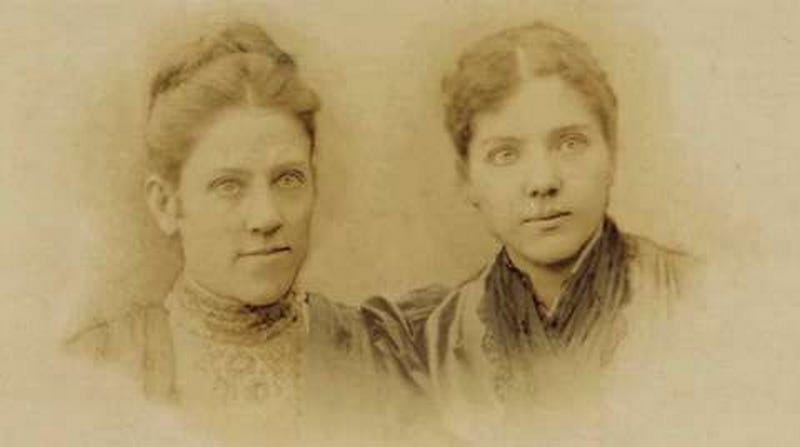June 27 - How a Simple Kindergarten Song Became History's Most Sung Melody
In today's lesson, we will explore how true spiritual authority emerges not from displaying our capabilities but from voluntarily constraining them to serve others. What happens when a classically trained composer chooses to write melodies for kindergarteners instead of showcasing her sophisticated skills? How does this choice reveal a profound principle about love, influence, and the very nature of Christ-like leadership in our modern world?
"To the weak I became weak, to win the weak. I have become all things to all people so that by all possible means I might save some." -
The piano keys felt familiar beneath Mildred Hill's fingers as she worked through another simple melody for her sister's kindergarten project. At thirty-four, the accomplished composer and musicologist had already established herself as a serious scholar of African American music, but Patty's request for educational songs offered a different kind of creative challenge. Her sister, standing nearby with lyrics about greeting classmates, nodded approvingly as Mildred played the sixteen-note melody again. Neither woman could have imagined they were creating what would become the most sung song in human history.
Mildred Jane Hill entered the world on June 27, 1859, in Louisville, Kentucky, into a family where education and music intertwined naturally. Her father, William Wallace Hill, served as a Presbyterian minister and educator who believed in progressive education for his daughters. Her mother, Martha Jane Smith Hill, brought artistic sensibilities to their household. The Hills valued intellectual pursuit and creative expression equally, establishing an environment where young Mildred would flourish both academically and musically.
From childhood, Mildred demonstrated exceptional musical ability. She studied music under Calvin Cody and the respected instructor Adolph Weidig, developing skills that would later establish her as a professional musician of considerable reputation. Unlike the common misconception that she was a kindergarten teacher like her sister Patty, recent scholarship by Professor Robert Brauneis reveals that Mildred focused entirely on music composition, performance, and scholarly research.
Her true passion lay in documenting and preserving African American musical traditions. Living in post-Civil War Louisville, a city where riverboat traffic and railroad connections brought diverse musical influences together, Mildred spent Sundays in African American churches transcribing spirituals. She heard the street cries of Black vendors, recognized the unique musical scales they employed, and predicted that these sounds would form the foundation of distinctly American musical genres.
Writing under the pen name "Johann Tonsor," Mildred published groundbreaking articles about Black American music. Her 1892 piece titled "Negro Music" appeared in the journal Music and proved remarkably prescient. She wrote that when America's "musical Messiah" arrived, he would find "ready to his hand a mass of lyrical and dramatic themes with which to construct a distinctively American music." This article would soon find its way into the hands of one of history's most celebrated composers.
In December 1892, music journalist James Gibbons Huneker arrived at Antonín Dvořák's Manhattan apartment carrying a copy of Mildred's article. Dvořák, who had recently arrived in New York to direct the National Conservatory of Music, read the piece carefully, annotating it as he went. His copy, complete with his young son's doodles in the margins reading "I love you Daddy," still exists in the Dvořák Museum in Prague. Mildred's insights about American musical themes directly influenced Dvořák's composition of his famous New World Symphony.
The collaboration with her sister Patty began naturally from their shared commitment to education and child development. Patty, who ran the progressive Louisville Experimental Kindergarten School, needed songs that would engage young children in learning. She had studied progressive educational theories from educators like Friedrich Froebel and understood that music could enhance children's educational experience significantly.
Their most famous collaboration emerged from a practical classroom need. Patty wanted a simple song that kindergarten children could sing to greet each other at the beginning of each school day. She wrote lyrics that began "Good morning to you, Good morning to you, Good morning dear children, Good morning to all." Mildred composed a melody that young voices could easily manage, with a range that accommodated typical five-year-old vocal abilities and a rhythm that children could clap along with naturally.
The sisters methodically tested their songs with actual kindergarten students, refining melodies and lyrics based on what worked in real classrooms. This careful attention to practical application reflected both women's commitment to educational effectiveness rather than mere artistic expression. The handwritten manuscript of Good Morning to All, discovered in 2014 at the University of Louisville's music library, shows evidence of modifications made to accommodate young singers.
The song first appeared in print in 1893 in their collaborative work "Song Stories for the Kindergarten," published by Clayton F. Summy Company. The collection represented years of classroom testing and refinement, containing musical activities that had proven successful with actual students. The Hill sisters included detailed instructions for teachers about how to use each song effectively, demonstrating their commitment to practical educational application.
That same year, 1893, the Hill sisters received recognition at the Chicago World's Fair for their work in progressive education at the Louisville Experimental Kindergarten School. This honor came at one of the most significant world's fairs in history, which attracted 27.5 million visitors and established the United States as a premier industrial power. Their recognition highlighted the growing importance of progressive educational methods in American schools.
What happened next illustrates the unpredictable nature of cultural influence. Gradually, people began substituting “Happy Birthday to you” for the original “Good morning to you” lyrics, keeping Mildred's melody intact. The song's simplicity made it perfect for birthday celebrations: easy to remember, comfortable to sing, and appropriate for voices of all ages. By the early 1900s, the birthday version had become common at parties and gatherings across America.
Mildred Hill died in Chicago on June 5, 1916, just weeks before her fifty-seventh birthday, long before her simple melody became the world's most recognized song. She never witnessed the global phenomenon her collaboration with Patty would become, nor could she have anticipated the complex copyright disputes that would surround their creation for decades to come.
The late 19th century marked a revolutionary period in American education, particularly regarding early childhood learning. The kindergarten movement, pioneered by German educator Friedrich Froebel, was gaining momentum across the United States during Mildred Hill's career. This educational philosophy emphasized learning through play, creative activities, and sensory experiences rather than rote memorization and rigid discipline that characterized traditional schooling. Progressive educators like Patty Hill were implementing these theories in experimental schools, creating environments where children could learn naturally through songs, games, and hands-on activities.
The era also witnessed the emergence of modern copyright law in America, though the legal framework remained far simpler than today's complex intellectual property landscape. The Copyright Act of 1831 provided protection for 28 years with the possibility of a 14-year extension, but enforcement proved challenging and many works entered public circulation without proper attribution. This legal environment would later create significant complications for the Hill sisters' work. When Good Morning to All was published in 1893, no one anticipated that changing a few words would eventually generate millions of dollars in royalties or spark decades of legal battles over who owned the rights to what became Happy Birthday to You.
The piano keys knew the weight of serious music. Mildred Hill's fingers had traced Bach fugues and Chopin nocturnes, had navigated the complex harmonies that marked a true composer. Yet on this ordinary morning in 1893, she found herself playing something entirely different. A simple melody, just sixteen notes, designed not to showcase her abilities but to serve five-year-old voices. Her sister Patty stood nearby with lyrics about morning greetings. Together they were creating something that sophisticated musicians might dismiss as child's play.
This moment in history reveals a profound spiritual truth that challenges everything our culture teaches about success and influence. "To the weak I became weak, to win the weak. I have become all things to all people so that by all possible means I might save some."
Paul understood what Mildred Hill demonstrated: true spiritual authority emerges not from displaying our capabilities but from voluntarily constraining them to meet others where they are.
We live in an age obsessed with expertise. LinkedIn profiles showcase advanced degrees. Social media celebrates achievements. Churches often measure pastoral effectiveness by theological sophistication. Business leaders equate influence with demonstrating superior knowledge. Parents think they model success by highlighting their accomplishments to their children. Yet this approach fundamentally misunderstands how divine love operates.
Mildred Hill possessed the musical knowledge to compose symphonies. She had studied under respected instructors, could analyze complex harmonic structures, understood advanced compositional techniques. But when her sister needed songs for kindergarten children, Mildred didn't create simplified versions of impressive works. She started from scratch, allowing the limitations of five-year-old voices to shape every note. She spent weeks in classrooms, watching which phrases caused children to stumble, adjusting melodies until young singers could master them effortlessly.
This wasn't a compromise of her gifts. It was their highest expression. Love constrains power not to diminish it but to maximize its redemptive impact.
When Jesus chose simple parables over philosophical treatises, He wasn't dumbing down truth. He was embodying the principle that divine authority serves rather than impresses.
The modern church desperately needs this lesson.
We've created a culture where spiritual maturity is measured by how much we can demonstrate rather than how much growth we can facilitate in others. Pastors feel pressure to showcase theological knowledge instead of communicating truth in ways their congregation can actually apply.
warns us against this very temptation: "...knowledge puffs up while love builds up."
Consider how this applies beyond church walls.
The marketing executive who uses industry jargon to sound impressive rather than clear communication that actually helps clients understand. The parent who lectures about their own achievements instead of adapting their teaching to their child's developmental stage. The teacher who prioritizes covering advanced material over ensuring students grasp foundational concepts. In each case, expertise becomes a barrier rather than a bridge.
Mildred Hill's example shows us a different way. True influence flows from the willingness to make ourselves smaller so others can grow larger. This requires dying to our need for recognition, crucifying our desire to be seen as impressive. It means choosing effectiveness over ego, impact over image.
The most powerful moment in human history demonstrates this principle perfectly.
"Who, being in very nature God, did not consider equality with God something to be used to his own advantage; rather, he made himself nothing by taking the very nature of a servant,"
Christ possessed infinite knowledge, unlimited power, absolute authority. Yet He constrained these capabilities to serve humanity's limitations. He spoke in terms fishermen could understand, used examples farmers could grasp, adapted His infinite wisdom to finite minds.
This is the pattern every Christian is called to follow. Whether you're a doctor explaining treatment options to frightened patients, a manager training new employees, or a parent helping children navigate their struggles, the question isn't how much you know. It's how willing you are to meet people where they are.
The resistance to this principle runs deep. Our fallen nature craves recognition. We want others to see our capabilities, appreciate our knowledge, acknowledge our expertise. Choosing to constrain these gifts feels like death because, in a sense, it is.
It's the death of self-promotion, the crucifixion of ego, the burial of our need to be impressive.
But this death leads to resurrection power. Mildred Hill's willingness to simplify her musical sophistication created something that billions of people have sung. Her constraint became her greatest contribution. Her limitation became her legacy.
When we choose to serve others' capacity rather than showcase our own, God multiplies our influence beyond what impressive displays ever could.
This week, identify one area where you currently use your expertise to impress rather than serve, then deliberately practice "expertise crucifixion" by adjusting your communication style to meet others where they are rather than demanding they rise to your level. Whether you're explaining a work process to a new colleague, helping your child with homework, or discussing faith with someone exploring Christianity, focus entirely on their comprehension and growth rather than showcasing your knowledge, treating every conversation as an opportunity to practice the servant leadership that Jesus modeled by constraining His infinite wisdom to serve finite minds.
Heavenly Father, we confess that our hearts too often crave recognition for our abilities rather than seeking to serve others with them. Forgive us for the times we've used our knowledge to build barriers instead of bridges, when we've chosen to impress rather than empower those around us. Help us follow Christ's example of voluntary constraint, willingly limiting our displays of expertise so that others might grow and flourish. Transform our desire for recognition into a passion for effective service. Give us the humility to meet people where they are rather than demanding they rise to where we stand. May our skills and knowledge become instruments of love that build others up rather than tools that make us appear superior. We pray for the courage to crucify our egos daily, trusting that in this death we will find the resurrection power that multiplies our influence for Your kingdom. In Jesus' name. Amen.
The world celebrates expertise that dazzles, but God honors expertise that serves. When we voluntarily constrain our capabilities to meet others where they are, we don't diminish our gifts but discover their highest purpose. True spiritual authority flows not from what we can display but from what we're willing to sacrifice for love's sake. In a culture obsessed with showcasing knowledge, the Christian calling is radically different: we're called to crucify our expertise so that others might live and grow. This is the pattern Christ established and the path every believer must walk.
My eyes are healing slowly, and my vision is still quite limited. One eye in particular isn’t responding as well. I may need to see the doctor before my scheduled follow-up.
Even in the midst of this, God blesses. Our June 20 article, What Happened When African Slave Traders Discovered Remote Iceland, is now one of our most viewed pieces ever. If you missed it, I encourage you to check it out. Thank you to everyone who read it and commented, and especially to those who restacked and shared it with others.
I would truly appreciate your continued prayers.

Available for iOS and Android

















